For the testimonials of our exchange students click here.
N.B.: Some faculties, including the Faculty of Humanities of the current University of Debrecen were called Kossuth University, in short, Kossuth, or, with an acronym, KLTE before 2000.
| Tamás Bányai, head of consumer segments marketing - Vodafone Magyarország |
|---|
|
|
| Viktória Barna-Nagy, shoe designes - Civila-Hungary Ltd. László Barna, international trade manager - Civila-Hungary Ltd. |
|---|
|
Viki When I was a child my father always told me that I should think twice when deciding which university I wanted to go to because in one’s life the university years can be the happiest. Even twenty years after my graduation do I find this sentence true as my “Kossuth-existence” was the freest, the most carefree, and the intellectually most inspiring period in my life, in which being an English major, and within that doing the British Studies track, played a crucial role. Laci Even as a secondary-school student I knew that I wanted to do business in foreign trade, and it was mostly under my parents’ pressure that I applied to be an English major at KLTE instead of going to a specialised college. A couple of years had to pass after my graduation for me to realise that whatever practical knowedge is needed for my work is easy to acquire on the way. What is a lot more difficult to gain after university is the wide-ranging erudition, and the openness and tolerance to ideas different from our own, to people thinking differently, the ability to recognise our own creativity, to acquire the culture of debate, to accept constructive criticism – i.e. the knowledge and experience that seeped into me in a way that I was not even aware of at KLTE in the classes, in the breaks, in the English majors’ special events or at Kossuth Club around midnight. Let alone my knowledge of English, firm as a rock, which not even twenty years of ‘pidgin English’ could erase in me, a crucial factor in never having to start a business meeting saying “Sorry for my English…”. This is why I recommend to all applicants – from a distance of a great many years – to make the best of each and every moment of their time while doing their English Studies, because no matter what kind of job they will have after graduation, they will most probably not enjoy the luxury of reading the best poems and novels of world literature as their main daily actvity, under the guidance of the best instructors, at the – perhaps – most beautiful university of the country. |
| Tibor Barna, teacher mentor - The British Council, Malaysian Borneo |
|---|
|
|
| Csatári Annamária, secondary school teacher - Grammar School of the Reformed Church, Debrecen |
|---|
|
|
| Emri Dávid, team leader - IT Services Hungary |
|---|
|
|
| Fekete Gyöngyi, translator - European Parliament |
|---|
|
|
| Monika Hartill, offshore corporate administrator - Isle of Man |
|---|
|
The intellectual ‘refuge’ provided by the Institute for the then Transylvanian student was plentiful: I met encouragement and a friendly environment. I had a well-equipped library to use. I acquired knowledge from world class tutors, and a second language which I now use at home and at work daily. I received insight into the language, literature and culture of English speaking countries brought along by the visiting lecturers. I studied in Brisbane and in Norwich, I trained as a young teacher in Eger, and I shared thoughts at conferences. |
| Zsuzsa Hoffmann, teacher of English and German - ASC International House, Genf |
|---|
|
|
| Enikő Jakab, translator - European Commission, Directorate-General for Translation, Luxemburg |
|---|
|
|
| Julianna Katona, key worker - Kids Company, London, UK |
|---|
|
|
| Kálmán Matolcsy, teacher of English, translator - Irinyi János Grammar School |
|---|
|
|
| Csaba Molnár, teacher of English - Ho Chi Minh City, Vietnam |
|---|
|
Studying at IEAS was fun and an exciting experience and it proved to be a lasting influence on my life in too many ways to recount here. I'm currently employed by one of the most prestigious language centres in a beautiful tropical country. I also work part-time as a lecturer at a private university here. How did my studies at IEAS help me embark on this adventure? |
| Kriszta Nagy, projekt manager - University of Chicago |
|---|
|
|
| Zsófia Puszta(-McIntyre), knowledge management project manager - Oracle EMEA Ltd, Dublin, Ireland |
|---|
|
I received my degree in English and German Studies from Debrecen University in 2000. Currently I work for the sofware-giant Oracle as a Knowledge Management project manager within the EMEA (Europe, Middle-East and Africa) Business Operations. |
| Angelika Reichmann, senior lecturer - Eszterházy Károly College, Eger |
|---|
|
|
| Viktória Rózsa, interpreter and translator - freelancer |
|---|
|
|
| Ágnes Schottner, contract support manager - British Telecom |
|---|
|
|
| Fruzsina Szabó, teacher of English - University of Debrecen, Faculty of Arts and Humanities |
|---|
|
|
| Judit Szabó, head of communications - KREA School of Arts and Arts Institute |
|---|
|
Actually, it is to IEAS that I owe my unforgettable years as a university student. It provided me with a home for 5 + 3 years, even if in the last years I didn't really live in Debrecen. On the one hand, I received an education of high standard here, on the other, I came to know lecturers extraordinary both in human and professional terms who have been playing a crucial part in my life ever since, and who now I can call my friends. |
| Katalin Szabó, storytelling coach, brand specialist - Storymetria, Career Design |
|---|
|
|
| Tamás Tukacs, junior lecturer - College of Nyíregyháza |
|---|
|
|
| Tünde Varga-Atkins, learning technologist (e-learning) - University of Liverpool |
|---|
|
|
| András Voith, graphics designer - Promotica Grafikai Stúdió |
|---|
|
|
| Eszter Zimányi, MA student - MA student |
|---|
|
|
| Péter Zsembery, copywriter - DDB Budapest (www.ddb.hu) |
|---|
|
|
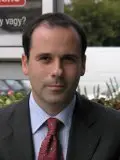 What have I received from being an English major at (what used to be) Kossuth University? Respect for others’ thoughts, yet, at the same time, space, time and freedom for thoughts of my own. High expectations concerning clarity of form and thought. Reading differently: more quickly, and more, but in a thinking way, thinking on, questioning, not always accepting. The chance to develop – but only as far as I wanted to, or let it go. Apart from teaching proper, shared thinking between teachers and students; friends, love, parties and places for turning from youth into almost-adulthood. And all this in such a way that even today I have a lump in my throat when thinking of Debrecen – it would be good to be back there and then. Although I no longer read as much English literature as in my undergraduate days, it is not only the the language skills that I find extraordinarily valuable even in what is a radically different walk of life, but also the mode of thinking and creativity that I acquired at Kossuth University.
What have I received from being an English major at (what used to be) Kossuth University? Respect for others’ thoughts, yet, at the same time, space, time and freedom for thoughts of my own. High expectations concerning clarity of form and thought. Reading differently: more quickly, and more, but in a thinking way, thinking on, questioning, not always accepting. The chance to develop – but only as far as I wanted to, or let it go. Apart from teaching proper, shared thinking between teachers and students; friends, love, parties and places for turning from youth into almost-adulthood. And all this in such a way that even today I have a lump in my throat when thinking of Debrecen – it would be good to be back there and then. Although I no longer read as much English literature as in my undergraduate days, it is not only the the language skills that I find extraordinarily valuable even in what is a radically different walk of life, but also the mode of thinking and creativity that I acquired at Kossuth University.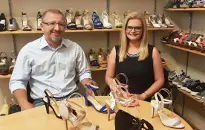
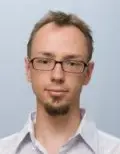 The reason why in 2003 I applied to the University of Debrecen was that I wanted to be a student in a humane, non-metropolitan city; also, my head of class (and, at the same time, my teacher of English) told me: when it comes to being an English major, Debrecen is a must. Looking back on the experiences and achievements of my past ten years, now I can fully understand – and I am happy that I took – my teacher’s advice. The exceptionally high-standard academic tuition at IEAS provided me with such a strong professional knowledge that I could manage even in an international environment, meeting high expectations. After my graduation, I worked for three years in Ho Chi Minh City as a teacher of English at Intenational House. At the moment, I live in Borneo, employed by the British Council as a teacher mentor, doing the professional training of local teachers of English.
The reason why in 2003 I applied to the University of Debrecen was that I wanted to be a student in a humane, non-metropolitan city; also, my head of class (and, at the same time, my teacher of English) told me: when it comes to being an English major, Debrecen is a must. Looking back on the experiences and achievements of my past ten years, now I can fully understand – and I am happy that I took – my teacher’s advice. The exceptionally high-standard academic tuition at IEAS provided me with such a strong professional knowledge that I could manage even in an international environment, meeting high expectations. After my graduation, I worked for three years in Ho Chi Minh City as a teacher of English at Intenational House. At the moment, I live in Borneo, employed by the British Council as a teacher mentor, doing the professional training of local teachers of English. I got my MA in English and Hungarian in 2001, since then I have been working in one of the oldest grammar schools of the country, and I am the professional referent of the preparatory year of intensive language learning.
I got my MA in English and Hungarian in 2001, since then I have been working in one of the oldest grammar schools of the country, and I am the professional referent of the preparatory year of intensive language learning.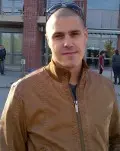 Apart from my studies, the most important things I have gained at the University and the Institute are the friendships that still last and beckon at me even at work. In addition to acquiring English language and culture I learnt to handle - and to communicate with - people, which has been enormous help both in managing to get this job and to do it successfully on an everyday basis. At the moment I am the team leader of fifty employees, and I am sure I could not have been able to achieve this position without the experiences at the Institute.
Apart from my studies, the most important things I have gained at the University and the Institute are the friendships that still last and beckon at me even at work. In addition to acquiring English language and culture I learnt to handle - and to communicate with - people, which has been enormous help both in managing to get this job and to do it successfully on an everyday basis. At the moment I am the team leader of fifty employees, and I am sure I could not have been able to achieve this position without the experiences at the Institute.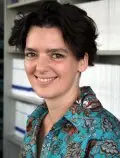 I graduated from the University of Debrecen with a degree in English and French, after which I took a one-year training course in translation and interpretation at the Budapest University of Technology and Economics. I then worked at international consulting companies as an interpreter and translator. Meanwhile, I passed a competition launched by the European Union to recruit translators, as a result of which I have been working, since May 2007, as a translator at the European Parliament in Luxembourg. I became aware of the advantages of having a degree in languages during the translation training course, and I still make use of them every day in my work. Aside from deciphering the texts written in a foreign language (often no easy task!), the greatest challenge for me is how to put them into correct Hungarian.
I graduated from the University of Debrecen with a degree in English and French, after which I took a one-year training course in translation and interpretation at the Budapest University of Technology and Economics. I then worked at international consulting companies as an interpreter and translator. Meanwhile, I passed a competition launched by the European Union to recruit translators, as a result of which I have been working, since May 2007, as a translator at the European Parliament in Luxembourg. I became aware of the advantages of having a degree in languages during the translation training course, and I still make use of them every day in my work. Aside from deciphering the texts written in a foreign language (often no easy task!), the greatest challenge for me is how to put them into correct Hungarian.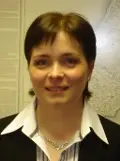
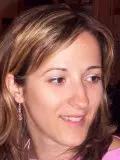 I spent almost exactly ten years to the day at the English department in Debrecen: as an undergraduate first, then a doctoral student. This period was spent not only studying (although, undoubtedly, most of the time studying), but in some terms I also taught language classes or linguistics. It would be more than difficult to enumerate what I learnt here because my laguage proficiency and my professional knowledge serve only as the basis for the attitudes and perspectives that I gained from my teachers, and which I as a teacher can also utilise, even when teaching other languages. This is only one side, though. What I consider just as important is that I always entered the corridor of the institute with great pleasure. I can say thanks to the institute for my best friends, the big parties, excursions, fantastic English major parties and a term’s scholarship in Britain – and all this, I would think, is more than telling.
I spent almost exactly ten years to the day at the English department in Debrecen: as an undergraduate first, then a doctoral student. This period was spent not only studying (although, undoubtedly, most of the time studying), but in some terms I also taught language classes or linguistics. It would be more than difficult to enumerate what I learnt here because my laguage proficiency and my professional knowledge serve only as the basis for the attitudes and perspectives that I gained from my teachers, and which I as a teacher can also utilise, even when teaching other languages. This is only one side, though. What I consider just as important is that I always entered the corridor of the institute with great pleasure. I can say thanks to the institute for my best friends, the big parties, excursions, fantastic English major parties and a term’s scholarship in Britain – and all this, I would think, is more than telling.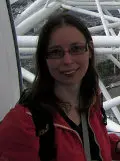 It is really difficult to describe in just a few lines what the five years I spent studying at the Institute of English and American Studies mean to me. It was hard work and good fun at the same time; gave me sound knowledge I can always rely on; taught me to be resilient, and also how to see things from a fresh perspective. There were fascinating seminars and lectures delivered by professors whose deep knowledge was highly motivating and whose human warmth will always stay with me.
It is really difficult to describe in just a few lines what the five years I spent studying at the Institute of English and American Studies mean to me. It was hard work and good fun at the same time; gave me sound knowledge I can always rely on; taught me to be resilient, and also how to see things from a fresh perspective. There were fascinating seminars and lectures delivered by professors whose deep knowledge was highly motivating and whose human warmth will always stay with me.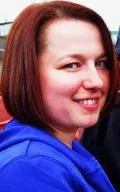 The Institute of English and American Studies has given me the world itself. At least that's how it feels. It has opened up such cultural vistas that would never have opened otherwise for me. During the five years spent there my sense of social responsibility developed so much that without it I wouldn't have chosen the carrier path I am now on. I knew even back then that being a teacher wouldn't be for me but the knowledge of literature and history of the English speaking world serves me very well in terms at least having some knowledge of the cultural and historical background of the families I work with. The gender studies seminars not only took me towards feminism but also gave me a hightened sense of acceptance of all forms of otherness in society. I made amazing friends and have lots of lovely memories of my time there. My thirst for knowledge and studying itself came to its own during my time at the IEAS and right now I'm about to get my second degree through the Open University which is in Childhood and Youth Studies.
The Institute of English and American Studies has given me the world itself. At least that's how it feels. It has opened up such cultural vistas that would never have opened otherwise for me. During the five years spent there my sense of social responsibility developed so much that without it I wouldn't have chosen the carrier path I am now on. I knew even back then that being a teacher wouldn't be for me but the knowledge of literature and history of the English speaking world serves me very well in terms at least having some knowledge of the cultural and historical background of the families I work with. The gender studies seminars not only took me towards feminism but also gave me a hightened sense of acceptance of all forms of otherness in society. I made amazing friends and have lots of lovely memories of my time there. My thirst for knowledge and studying itself came to its own during my time at the IEAS and right now I'm about to get my second degree through the Open University which is in Childhood and Youth Studies.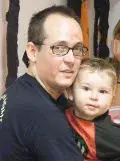 I had always known that the University of Debrecen would nurture and provide, since, listening to my parents’ true fairy tales as a kid, many a time had I dreamed of being a university student. Yet, looking back after a period of nearly ten years, even I was astonished to realize that the Institute of English and American Studies defined not only my main fields of interest, but also inscribed the story of my life. In addition to scholarly activities—exciting work under the supervision of Professor Donald Morse prompted me to enroll the postgraduate program, while recently I have performed technical editorial work for the institute’s own scholarly periodical—currently I work as a teacher of English and translator (thank goodness, I am fortunate enough to be translating my favorite authors, among many others). Furthermore, apart from having acquired most of my friendly relations at the institute, I also met my wife here, who is now expecting our second baby. I wish to express my gratitude to the University, for not bending the endless passage of opportunities back into itself like some donut for US policemen, and to my tutors, for teaching me in their patient and innovative way.
I had always known that the University of Debrecen would nurture and provide, since, listening to my parents’ true fairy tales as a kid, many a time had I dreamed of being a university student. Yet, looking back after a period of nearly ten years, even I was astonished to realize that the Institute of English and American Studies defined not only my main fields of interest, but also inscribed the story of my life. In addition to scholarly activities—exciting work under the supervision of Professor Donald Morse prompted me to enroll the postgraduate program, while recently I have performed technical editorial work for the institute’s own scholarly periodical—currently I work as a teacher of English and translator (thank goodness, I am fortunate enough to be translating my favorite authors, among many others). Furthermore, apart from having acquired most of my friendly relations at the institute, I also met my wife here, who is now expecting our second baby. I wish to express my gratitude to the University, for not bending the endless passage of opportunities back into itself like some donut for US policemen, and to my tutors, for teaching me in their patient and innovative way.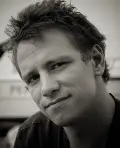
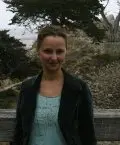 My studies at the Institute of English and American Studies (IEAS) will always be among my fondest memories. I am grateful for the exciting opportunities, the good times with the best student community and friends, and, in particular, for the success for which I can only thank the uniquely inspiring lecturers in the Department. At IEAS, I could share my passion for the English language, culture, and literature with other crazed Anglomaniacs, which was fantastic. Through my studies at Debrecen, I even had the opportunity to do a term of study abroad in England. Above all, IEAS has provided me with solid knowledge that is internationally competitive: upon receiving my degree, I successfully applied for a British Government scholarship that fully funded my doctoral research in contemporary British literature at the University of Bristol. After completing my Ph.D., I moved to the United States. I currently work at the University of Chicago in a centre for educational research and textbook development, a position where one of my assets is the professional preparation and background in education that I received at the University of Debrecen. I also find the foundational course in American literature and civilization to come in quite handy in my everyday life. My appreciation only grows with time for IEAS’s approach to English studies as the coursework combines a wide array of disciplines, including, among others, linguistics, literary studies, cultural studies, media and film studies, history, education and English language instruction methodologies. This level of diversity and rigour in the academic programme is, I believe, pretty singular and will give IEAS graduates a competitive edge for their lifetime, in addition to skills, competencies and expertise that can be transferred into a number of professions.
My studies at the Institute of English and American Studies (IEAS) will always be among my fondest memories. I am grateful for the exciting opportunities, the good times with the best student community and friends, and, in particular, for the success for which I can only thank the uniquely inspiring lecturers in the Department. At IEAS, I could share my passion for the English language, culture, and literature with other crazed Anglomaniacs, which was fantastic. Through my studies at Debrecen, I even had the opportunity to do a term of study abroad in England. Above all, IEAS has provided me with solid knowledge that is internationally competitive: upon receiving my degree, I successfully applied for a British Government scholarship that fully funded my doctoral research in contemporary British literature at the University of Bristol. After completing my Ph.D., I moved to the United States. I currently work at the University of Chicago in a centre for educational research and textbook development, a position where one of my assets is the professional preparation and background in education that I received at the University of Debrecen. I also find the foundational course in American literature and civilization to come in quite handy in my everyday life. My appreciation only grows with time for IEAS’s approach to English studies as the coursework combines a wide array of disciplines, including, among others, linguistics, literary studies, cultural studies, media and film studies, history, education and English language instruction methodologies. This level of diversity and rigour in the academic programme is, I believe, pretty singular and will give IEAS graduates a competitive edge for their lifetime, in addition to skills, competencies and expertise that can be transferred into a number of professions.
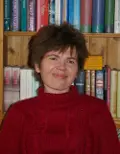 The Institute of English and American Studies at Debrecen University has played a special role in my life: for me it is a starting-point, to which I keep returning for various reasons – but invariably to be enriched. I graduated in 1998 as a teacher of English and Russian literatures and languages. During my university years I might not even have noticed how much I actually learnt from my teachers – not only about academic rigour, but also about open-mindedness, tolerance and humanity, about the acceptance of individuality and the appreciation of talent. I only realised this as a newly qualified teacher and supervisor of undergraduate research papers: when time and again I caught myself unconsciously trying to imitate my former teachers’ attitudes and behaviour. Results are yet to be seen, but even today I cannot imagine that it is possible or worthwhile to teach literature, and especially to help gifted students in any other way. Similarly, when writing my own articles and two dissertations – for a PhD and habilitation, both defended at Debrecen University – I was guided by the interiorised professional standards my former teachers represent.
The Institute of English and American Studies at Debrecen University has played a special role in my life: for me it is a starting-point, to which I keep returning for various reasons – but invariably to be enriched. I graduated in 1998 as a teacher of English and Russian literatures and languages. During my university years I might not even have noticed how much I actually learnt from my teachers – not only about academic rigour, but also about open-mindedness, tolerance and humanity, about the acceptance of individuality and the appreciation of talent. I only realised this as a newly qualified teacher and supervisor of undergraduate research papers: when time and again I caught myself unconsciously trying to imitate my former teachers’ attitudes and behaviour. Results are yet to be seen, but even today I cannot imagine that it is possible or worthwhile to teach literature, and especially to help gifted students in any other way. Similarly, when writing my own articles and two dissertations – for a PhD and habilitation, both defended at Debrecen University – I was guided by the interiorised professional standards my former teachers represent.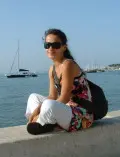 I put in my application to the University of Debrecen under a slight pressure from my mum. ’Debrecen is closer than Szeged,’ she would argue. How thankful I am now to her! I do not regret a single day I had spent there. Not even the one I got a fail for a vocab test in an English Literature class on the very first week from Professor Szaffko. It was sort of a wake-up call to me. ’Oh my God, this is bloody serious!’ I thought.
I put in my application to the University of Debrecen under a slight pressure from my mum. ’Debrecen is closer than Szeged,’ she would argue. How thankful I am now to her! I do not regret a single day I had spent there. Not even the one I got a fail for a vocab test in an English Literature class on the very first week from Professor Szaffko. It was sort of a wake-up call to me. ’Oh my God, this is bloody serious!’ I thought.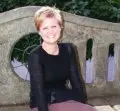 Thanks to a rock band, from the early years of my secondary school studies I was absolutely sure that I would like to be an English major; in addition, my aunt (a graduate from the University of Debrecen) and the impressive building of the university (superficial though this reason may sound) have convinced me that it should be done in Debrecen. I knew that here I would gain a deeper knowledge of the English language and culture. Yet, being an English major provided me with more than what I had expected: confidence as a speaker of English, the love of culture (primarily literature), a diversity of classes, and, of course, student life. And whatever I learnt here has an impact on my life even today, both on my work and on my leisure time. Reading and interpreting literature has taught me to see hidden but important aspects, the joy of discovery and openness towards new, and even unusual things. As an English major, I could have the full experience of student life.
Thanks to a rock band, from the early years of my secondary school studies I was absolutely sure that I would like to be an English major; in addition, my aunt (a graduate from the University of Debrecen) and the impressive building of the university (superficial though this reason may sound) have convinced me that it should be done in Debrecen. I knew that here I would gain a deeper knowledge of the English language and culture. Yet, being an English major provided me with more than what I had expected: confidence as a speaker of English, the love of culture (primarily literature), a diversity of classes, and, of course, student life. And whatever I learnt here has an impact on my life even today, both on my work and on my leisure time. Reading and interpreting literature has taught me to see hidden but important aspects, the joy of discovery and openness towards new, and even unusual things. As an English major, I could have the full experience of student life.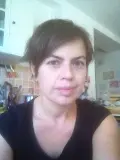 20 years ago I was waiting for my turn during the entrance exams, when I bumped into a few students undergoing the same anxiety and fate. Two of them are, have been, and will be still very close to me, with their unceasing intensive friendship: Edit Végvári and Zsófia Puszta. Perhaps this is the most important outcome of my studies. A more downtoearth result of the years at the university is that I have indeed become a techer of English and German. Indeed, yes, because on my graduation day in 1998 I was boasting to everyone that one thing I will never do: teaching languages. But fate was already smiling to itself, as I ended up as a teacher in a small but efficient language school: Galambos-Lindenfeld Studio. After many years there, and following some peaceful and sweetly remembered days of maternity leave, I have a job now at Debrecen University as a language teacher, teaching English to students of psychology. That is the present, and what to remember from those glamorous years: seminars with Mr Szilassy, compulsory, never-ending reading lists, excellent teachers, parties, well-remembered love affairs, an American scholarship, Mrs Bricklayers, the soirees of Mr Bényei and Ms Séllei, or the lectures of Mr Szaffkó, let alone the names of Pálma or Perényi street. The Bridge, and the general literary, intellectual atmosphere of the Department of the 90s. Maybe, as my 3 sons were admiring our bookshelves of English literature at home the other day, it is time to re-read Mr Shandy again!
20 years ago I was waiting for my turn during the entrance exams, when I bumped into a few students undergoing the same anxiety and fate. Two of them are, have been, and will be still very close to me, with their unceasing intensive friendship: Edit Végvári and Zsófia Puszta. Perhaps this is the most important outcome of my studies. A more downtoearth result of the years at the university is that I have indeed become a techer of English and German. Indeed, yes, because on my graduation day in 1998 I was boasting to everyone that one thing I will never do: teaching languages. But fate was already smiling to itself, as I ended up as a teacher in a small but efficient language school: Galambos-Lindenfeld Studio. After many years there, and following some peaceful and sweetly remembered days of maternity leave, I have a job now at Debrecen University as a language teacher, teaching English to students of psychology. That is the present, and what to remember from those glamorous years: seminars with Mr Szilassy, compulsory, never-ending reading lists, excellent teachers, parties, well-remembered love affairs, an American scholarship, Mrs Bricklayers, the soirees of Mr Bényei and Ms Séllei, or the lectures of Mr Szaffkó, let alone the names of Pálma or Perényi street. The Bridge, and the general literary, intellectual atmosphere of the Department of the 90s. Maybe, as my 3 sons were admiring our bookshelves of English literature at home the other day, it is time to re-read Mr Shandy again!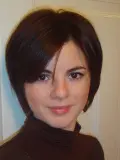
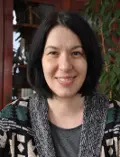 I remember the day of my oral entrance exam. In spite of the fact that I could only think up „homeless” as a synonym of „unemployed” – which the examiners found pretty hilarious – I had a great time. As I was walking on the corridors of the institute and sniffed its air, I knew with absolute certainty that I would have a very happy life among those walls. And I did! I spent a remarkable and absolutely inspiring 5 years there, which profoundly shaped my life. What did I take away? Nurturing friendships, which I still have today, a confident command of the English language, improved communication skills, critical thinking, and a progressive, open-minded, sensitive, inclusive worldview. All of which contributed greatly to my particular career path, which has finally led me to the job I love. For I had been a teacher, a middle manager in a multinational company, and now I am an entrepreneur, who is passionate about building brands, and teaching people how storytelling helps them succeed in their career. And who sometimes still sneaks back to sniff THAT air.
I remember the day of my oral entrance exam. In spite of the fact that I could only think up „homeless” as a synonym of „unemployed” – which the examiners found pretty hilarious – I had a great time. As I was walking on the corridors of the institute and sniffed its air, I knew with absolute certainty that I would have a very happy life among those walls. And I did! I spent a remarkable and absolutely inspiring 5 years there, which profoundly shaped my life. What did I take away? Nurturing friendships, which I still have today, a confident command of the English language, improved communication skills, critical thinking, and a progressive, open-minded, sensitive, inclusive worldview. All of which contributed greatly to my particular career path, which has finally led me to the job I love. For I had been a teacher, a middle manager in a multinational company, and now I am an entrepreneur, who is passionate about building brands, and teaching people how storytelling helps them succeed in their career. And who sometimes still sneaks back to sniff THAT air.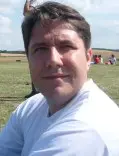 According to my degree, I am “a teacher of English language and literature”. These few words, however, are far from expressing how much I got from this department and its teachers during the five years of my studies. I never had to memorise useless data, yet I received a very wide-ranging and deep education here, for what the teachers imbued in me were general knowledge, a way of thinking and a view of the world. They required a lot, but they gave us a lot in return: they instructed us to be demanding, precise, hard-working but at the same time, opening new vistas again and again, inspired us to think bravely and create freely. As an ex-member of the Student Research Society, a PhD student, a candidate for a doctoral degree and as a college teacher I can firmly say that the knowledge (and hopefully, a view of things) I am trying to impart to my students comes from the Institute of English and American Studies, Debrecen.
According to my degree, I am “a teacher of English language and literature”. These few words, however, are far from expressing how much I got from this department and its teachers during the five years of my studies. I never had to memorise useless data, yet I received a very wide-ranging and deep education here, for what the teachers imbued in me were general knowledge, a way of thinking and a view of the world. They required a lot, but they gave us a lot in return: they instructed us to be demanding, precise, hard-working but at the same time, opening new vistas again and again, inspired us to think bravely and create freely. As an ex-member of the Student Research Society, a PhD student, a candidate for a doctoral degree and as a college teacher I can firmly say that the knowledge (and hopefully, a view of things) I am trying to impart to my students comes from the Institute of English and American Studies, Debrecen.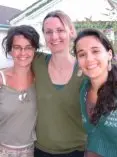 I feel very lucky that I ended up in Debrecen doing English and Library & Information science! I was taught by brilliant lecturers. Two foreign scholarships as an English major student in Birmingham and Antwerp demonstrated to me that the quality of the Debrecen degree was as good, if not better, than the degree programmes abroad. And, most importantly, it is thanks to one of these scholarships that I found the love of my life J. We settled in England, and although it may seem that knowing English is not a big thing here, I feel that the English degree paved the way for my career. Whether I need to write academic reports or explain a piece of technology to university staff, the communication, the language, as well as the pedagogic skills gained through my English degree all enable me to do my job well!
I feel very lucky that I ended up in Debrecen doing English and Library & Information science! I was taught by brilliant lecturers. Two foreign scholarships as an English major student in Birmingham and Antwerp demonstrated to me that the quality of the Debrecen degree was as good, if not better, than the degree programmes abroad. And, most importantly, it is thanks to one of these scholarships that I found the love of my life J. We settled in England, and although it may seem that knowing English is not a big thing here, I feel that the English degree paved the way for my career. Whether I need to write academic reports or explain a piece of technology to university staff, the communication, the language, as well as the pedagogic skills gained through my English degree all enable me to do my job well! I may not be able to recognise Lord George Gordon Byron on a street in darkness, but I think I have gained a lot from being a major in English at IEAS, UD that has proved useful in my everyday life. The fact that from the very beginning we had to "live" in English: we had to think in English, and mostly, we even communicated in a foreign language, helps me a lot even today in finding my way about, and in expressing myself, in various environments. The atmosphere of the department, and some charismatic lecturers have taught me how to combine soaring intellectually with minute and efficient work with facts, which provides me with help in fields as diverse as visual creativity or bringing up my child. Apart from learning facts (most of which already forgotten), studying at the university was primarily an intellectual adventure for me.
I may not be able to recognise Lord George Gordon Byron on a street in darkness, but I think I have gained a lot from being a major in English at IEAS, UD that has proved useful in my everyday life. The fact that from the very beginning we had to "live" in English: we had to think in English, and mostly, we even communicated in a foreign language, helps me a lot even today in finding my way about, and in expressing myself, in various environments. The atmosphere of the department, and some charismatic lecturers have taught me how to combine soaring intellectually with minute and efficient work with facts, which provides me with help in fields as diverse as visual creativity or bringing up my child. Apart from learning facts (most of which already forgotten), studying at the university was primarily an intellectual adventure for me.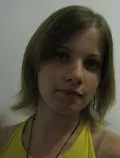 It sounds like the biggest cliche ever, but the good thing about cliches is that – after all – they are true. So believe it or not the best years are those that you spend at university. Especially if it is the University of Debrecen . During my studies there, I had the opportunity to study in England as an Erasmus student and in the United States as an ISEP student. Thanks to the Institute of English and American Studies, I have developed so much professionally and personally as is impossible to describe. I am especially grateful to the British Department whose faculty provided me with continuous help both academically and personally. This was not just a regular English course, but one that broadened my perspective (in literature, in gender studies, in history) and made me curious and eager to know more. So after a year of teaching English, which I also loved, I returned to studying again, and was accepted to Central European University .
It sounds like the biggest cliche ever, but the good thing about cliches is that – after all – they are true. So believe it or not the best years are those that you spend at university. Especially if it is the University of Debrecen . During my studies there, I had the opportunity to study in England as an Erasmus student and in the United States as an ISEP student. Thanks to the Institute of English and American Studies, I have developed so much professionally and personally as is impossible to describe. I am especially grateful to the British Department whose faculty provided me with continuous help both academically and personally. This was not just a regular English course, but one that broadened my perspective (in literature, in gender studies, in history) and made me curious and eager to know more. So after a year of teaching English, which I also loved, I returned to studying again, and was accepted to Central European University . The years spent on university "won't be forgotten", are "beautiful" and mean "a lasting impression" for everyone. At university you are already an adult, but you don't have adult problems yet, money doesn't really matter, there are hot chicks wherever you go, there are parties every day, and even if you take it very seriously, the only thing you have to think of is yourself, your marks, your scholarships. I'd make it compulsory for everyone. The world would be a better place.
The years spent on university "won't be forgotten", are "beautiful" and mean "a lasting impression" for everyone. At university you are already an adult, but you don't have adult problems yet, money doesn't really matter, there are hot chicks wherever you go, there are parties every day, and even if you take it very seriously, the only thing you have to think of is yourself, your marks, your scholarships. I'd make it compulsory for everyone. The world would be a better place.